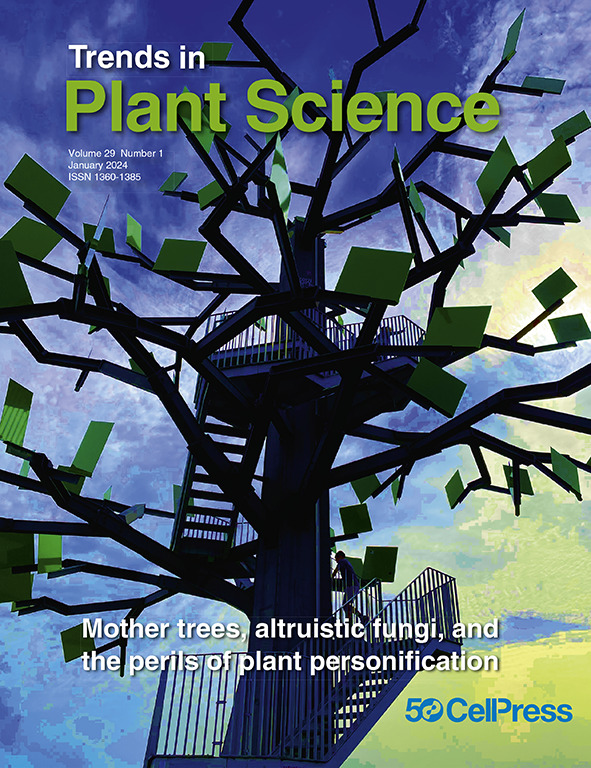木聚糖工程在维管组织中的应用。
IF 20.8
1区 生物学
Q1 PLANT SCIENCES
引用次数: 0
摘要
木质纤维素生物质为可持续生物燃料和生化生产提供了丰富的可再生原料,但半纤维素木聚糖限制了其有效利用。Ge等人在甜高粱中提出了一种优雅的生物质工程方法,通过维管组织特异性表达内切-1,4-β-木聚糖酶来增强木质纤维素的糖化,从而促进生物经济。本文章由计算机程序翻译,如有差异,请以英文原文为准。
Xylan engineering in vascular tissue for biomass valorization.
Lignocellulosic biomass offers an abundant and renewable feedstock for sustainable biofuel and biochemical production, but the hemicellulose xylan limits its efficient utilization. Ge et al. present an elegant biomass engineering approach in sweet sorghum by vascular tissue-specific expression of an endo-1,4-β-xylanase to enhance lignocellulosic saccharification to boost the bioeconomy.
求助全文
通过发布文献求助,成功后即可免费获取论文全文。
去求助
来源期刊

Trends in Plant Science
生物-植物科学
CiteScore
31.30
自引率
2.00%
发文量
196
审稿时长
6-12 weeks
期刊介绍:
Trends in Plant Science is the primary monthly review journal in plant science, encompassing a wide range from molecular biology to ecology. It offers concise and accessible reviews and opinions on fundamental plant science topics, providing quick insights into current thinking and developments in plant biology. Geared towards researchers, students, and teachers, the articles are authoritative, authored by both established leaders in the field and emerging talents.
 求助内容:
求助内容: 应助结果提醒方式:
应助结果提醒方式:


